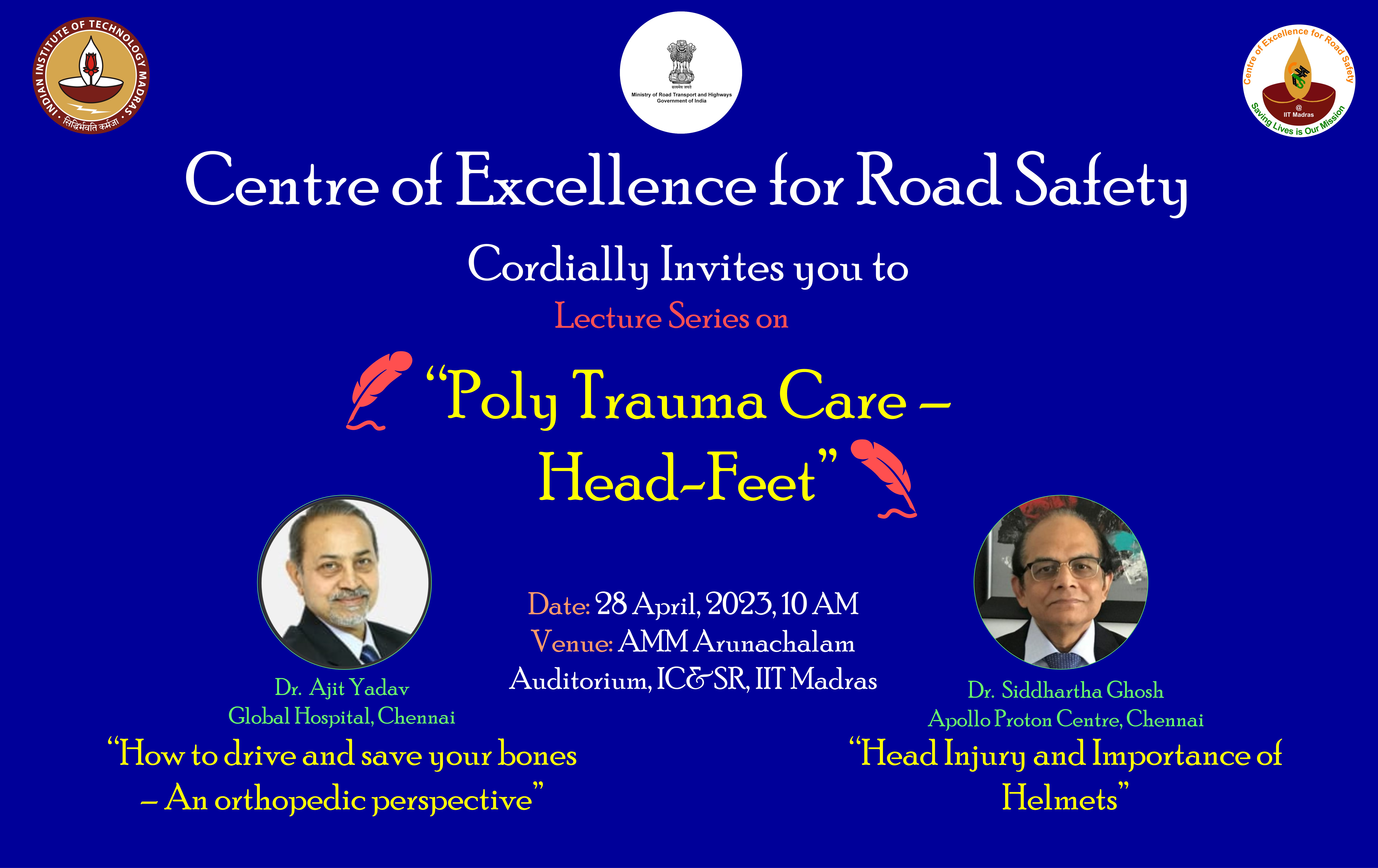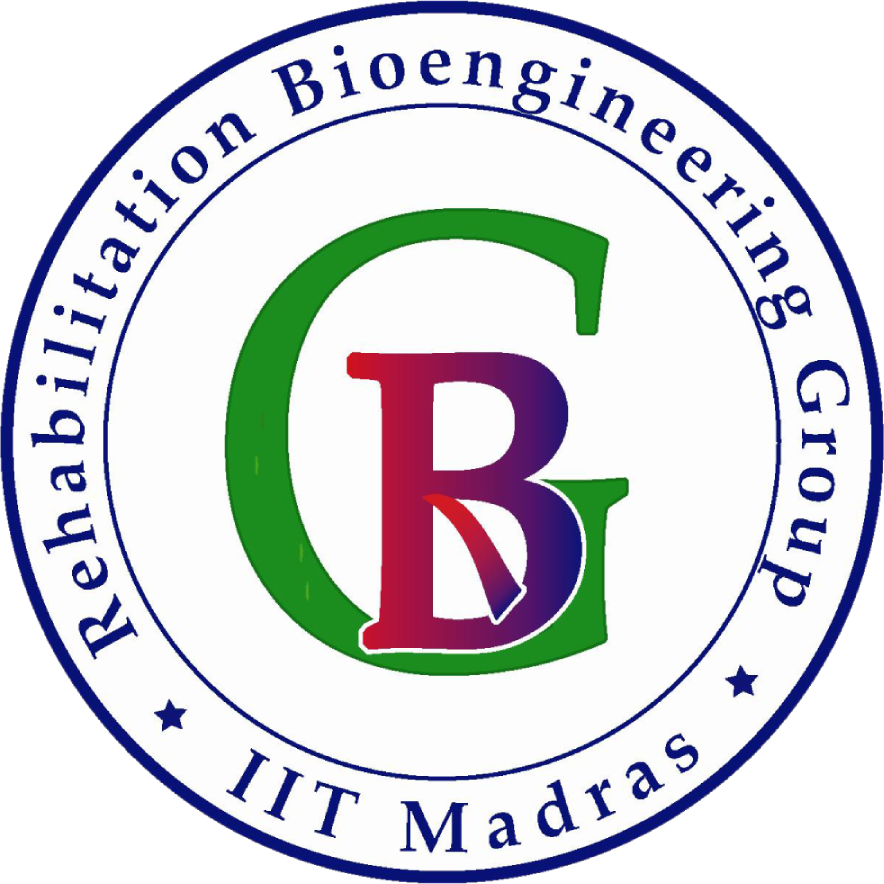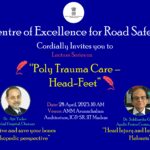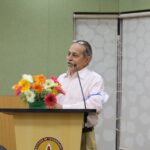
- This event has passed.
Poly Trauma Care – Head to Feet
April 28, 2023 @ 10:00 am - 2:30 pm

Introduction
India has a dubious distinction of leading the list of fatalities due to road traffic accidents worldwide. According to the World Health Organization (WHO), one out of ten people killed on roads across the world are from India. In a road crash, about 50% of mortality could occur in the first 10 minutes of injury, especially if it is to the head, spinal cord, cardiac ruptures, or any damage to the major blood vessels. A standardised operating procedure and an excellent comprehensive trauma program are quintessential requirements for reducing road crash fatalities.
The Need for Better Trauma Care in India
A design thinking approach to trauma care using lean principles, based on upskilling of people, deskilling of processes and data-driven decision making, which is the Tamil Nadu Accident and Emergency Care Initiative (TAEI), implemented by the centre in collaboration with NHM-TN. CoERS will be an ecosystem for Academia, Industry, and Government, bringing the best road safety practices to decrease deaths and injuries from road traffic crashes and organising a workshop on “Poly Trauma Care – Head to Feet” as a part of the celebration of ‘World Day for Safety and Health at Work’ on April 28, 2023.
How to Drive and Save Your Bones – An Orthopedic Perspective’ by Dr Ajit Yadav, Global Hospital, Chennai
Dr Ajit Yadav from Global Hospital, Chennai, addressed the gathering on road crash victims from an orthopaedic perspective. He outlined the necessity for timely orthopaedic care to trauma victims to increase their chances of a successful recovery, drawing from his own experiences as an orthopaedic surgeon.
Head injury and Importance of Helmets by Dr Sidhartha Ghosh, Apollo Proton Centre, Chennai
Dr Siddhartha Ghosh of the Apollo Proton Centre spoke on head injuries from road crashes. As a neurosurgeon, Dr Ghosh drew upon his experiences and elaborated on how victims of head trauma were the most likely to perish, often due to lack of protective equipment.
- Poster for the workshop
- Dr Ajit Yadav, Global Hospital, Chennai



